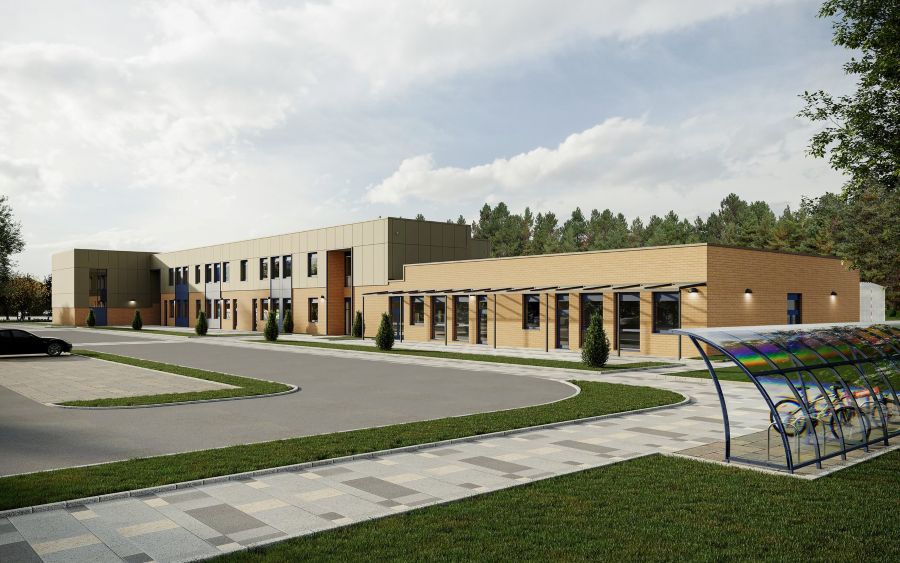The Energy Security and Net Zero Committee says poorly designed retrofit schemes, a “skills crisis” and costly assurance failures have significantly set back efforts to decarbonise home heating and bring down energy bills and pushed the UK’s clean, secure energy targets farther off track.
In their first report of this Parliament, the MPs call for a new national Warm Homes Advice Service, with indications that a tailored service signposting consumers to advice, certified installers and financial support could give a return of £15 for every £1 spent on it.
But the Committee also points to key steps that need to be taken to build confidence and competence in the retrofit programmes, to underpin the advice service and steer Government’s ambitions to deliver warm homes back on track.
Four in five homes that will be occupied in 2050 have already been built and most will need retrofitting with low carbon heating systems and energy efficiency improvements for the UK to achieve net zero emissions: that’s 29 million homes that need retrofitting by 2050 to achieve the Government’s emission reduction targets.

Upgrading all homes to at least Energy Performance Certificate (EPC) level C would deliver £40bn in economic benefits in the next 5 years alone, and up to £100bn in further benefits over the following decade. It would also make homes warmer, healthier and potentially cheaper to heat, reducing levels of cold-related illnesses and mental health conditions and potentially saving the NHS £2bn by 2030.
But today there are 98% fewer energy efficiency measures being installed in homes compared to the trajectory the UK was on in 2010. The Committee says key to restoring consumer confidence is to deliver on the promise to bring down the cost of electricity relative to gas, with reducing the proportion of energy policy costs levied on electricity bills the most immediate and simple way to achieve that.
Right now, the typical household pays roughly the same amount for gas as electricity, despite using four times more gas. While this rebalancing must be done sensitively to accommodate those remaining on the gas network, many of the poorest consumers, using direct electric heating, would benefit most from this change.
There have been too many, stop-start Government support schemes - at least 10 since 2013 - almost all with short-term funding. The Committee says this is failing to provide consumers, installers, investors or the wider supply chain with confidence needed to restructure the market to deliver warmer, healthier and lower carbon homes. With a national skills crisis and inadequate assurance, the Committee heard direct from people who’ve suffered poor quality retrofit in their homes, often impacting their health and costing £100,000s to repair.
Early estimates are that around 250,000 homes could be un-mortgageable due to spray foam insulation but this may not capture the true scale of the problem. The Committee is calling for a national workforce accreditation scheme to ensure people who do take the steps to upgrade their homes know who they can trust and do not instead face remediation works.
Bill Esterson MP, Chair of the ESNZ Committee said: “The UK’s disastrous lost decade for clean, secure energy is nowhere more evident than in the project to decarbonise and reduce costs for home heating: we are shockingly 98% below the levels of energy efficiency measures being installed in homes relative to the trajectory we were on in 2010.
“The Committee’s report sets out practical, urgent measures to build the consumer, investor and supply chain confidence needed to deliver the Government’s warm homes plans and its central contribution to the energy transition and Net Zero goals.
“Crucially, we need action now on reducing the costs of energy bills. The key will be to reduce the impact of the gas price on what we pay for electricity, but we could achieve a quick win by reducing the policy costs currently on electricity relative to gas. We recognise the legacy this Government inherited and its efforts to move forward but in an ongoing cost-of-living crisis time really is money, and money that we can’t afford. We need clear signals and certainty but more than that we need to start delivering lower energy bills to get this crucial element of clean, secure energy for Britain back on track.”
The Committee questions whether EPCs are fit for purpose, saying they do not support decarbonisation. Based on the costs of heating a home rather than its carbon footprint, they often recommend consumers install a new gas boiler rather than a heat pump. The Committee calls for the EPC metric to be reformed to account for both home heating costs and emissions.
The cost to completely decommission the gas network is currently estimated at £75bn, a cost that will rise the longer it takes. The Government has indicated it will make a decision on hydrogen for heating by 2026 but with trials at an end and time of the essence, the Committee believes this should come sooner, and calls on the Government to set out a plan for repurposing the gas network and who will bear the costs.
Amanda Williams, head of environmental sustainability at the Chartered Institute of Building (CIOB), said: “We are pleased to see the Energy Security and Net Zero Committee highlight the ongoing issues preventing the retrofitting of UK homes at the scale and pace needed. Households continue to suffer the impacts of high energy costs and drafty homes, which can be detrimental to finances, health, and standards of living, as well as severely hampering the drive to net zero.
"CIOB has previously highlighted what the report refers to as ‘stop-
“Our sector has well-documented skills and worker shortages so instead of short-term, ever-changing schemes, long-term policies that provide a steady pipeline of demand for retrofitting must be the way forward. This would provide the industry with the assurance to invest in training and upskilling the workforce, which in turn gives households confidence that retrofit works will be delivered by suitably qualified people. This is essential to address the current low levels of consumer confidence, which both CIOB and the Committee have highlighted.
“Gaining trust in the industry to deliver high quality retrofit measures is key to improving the take up of support schemes. We would also urge Government to carefully consider the funding of and access to these schemes, as even part-payment towards retrofit work is unaffordable for many when due in one lump sum. CIOB has previously made the case for an interest-free loan scheme to increase uptake, alongside well-advertised and trusted grants, made available over the long -term.
“We also agree with the Committee’s call for EPC rating reform and contributed to the Government’s consultation on this earlier this year. We hope some of our recommendations, along with those made by the Committee, will be incorporated in the consultation response. The current system is not fit for purpose and often fails to fully capture the retrofit measures that would deliver maximum reductions in carbon output from heating our homes and ensure everyone has a warm home in which to live.
“The scale and complexity of the retrofit challenge is daunting, but to overcome it, its vital there is a clear strategy addressing consumer confidence, the provision of advice, and access to and the promotion of schemes and funding. It must also cover ways to raise quality and standards through increasing provision for skills, training and accreditation.”




















